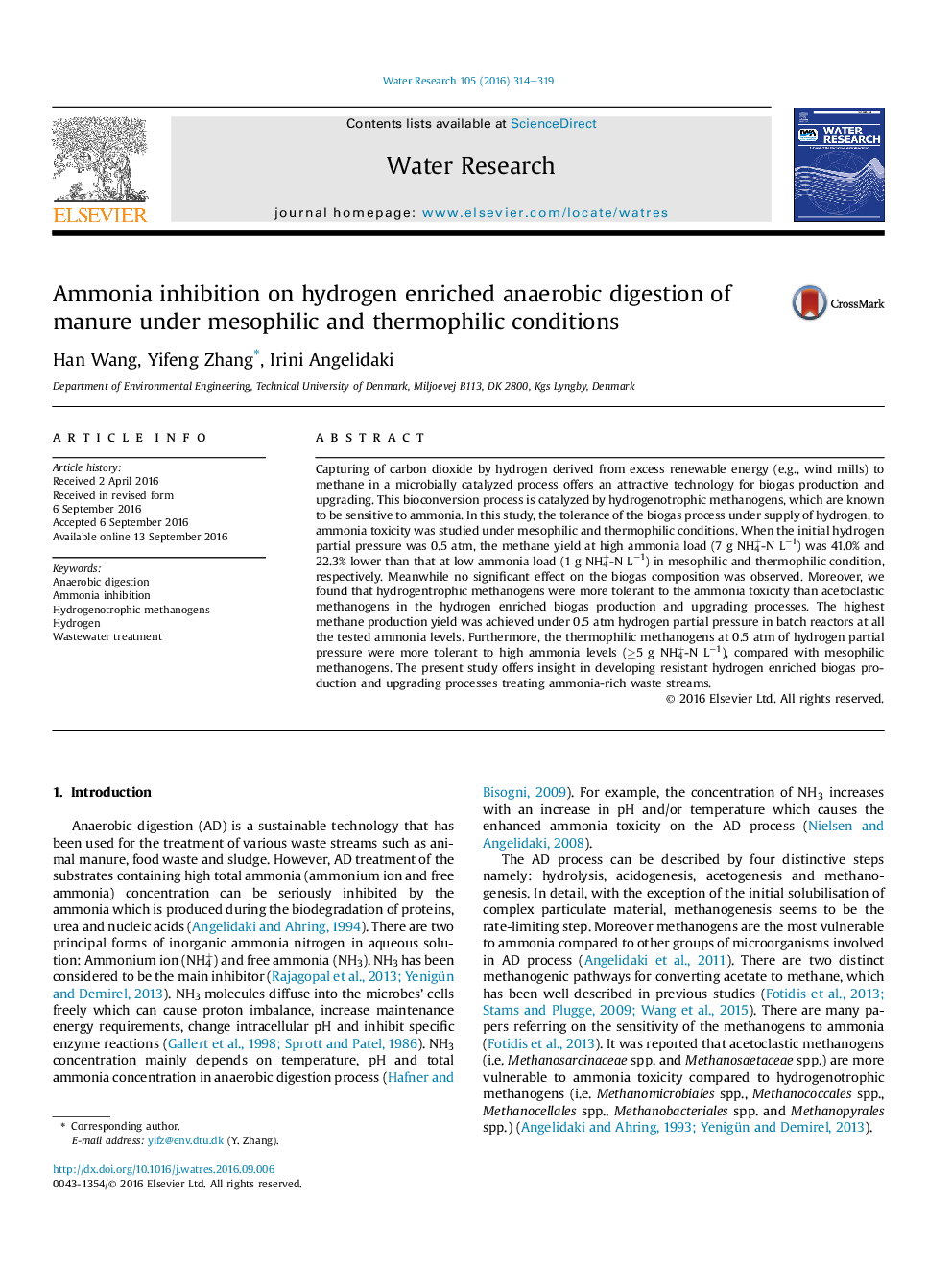| Article ID | Journal | Published Year | Pages | File Type |
|---|---|---|---|---|
| 6364594 | Water Research | 2016 | 6 Pages |
â¢High ammonia concentration inhibited hydrogen enriched biogas upgrading processes.â¢High ammonia concentration can lower the methane yield.â¢The ammonia concentration had no significant effect on the biogas composition.â¢Hydrogenotrophic archaea were more resistant to ammonia toxicity.â¢The ammonia toxicity was alleviated at thermophilic condition.
Capturing of carbon dioxide by hydrogen derived from excess renewable energy (e.g., wind mills) to methane in a microbially catalyzed process offers an attractive technology for biogas production and upgrading. This bioconversion process is catalyzed by hydrogenotrophic methanogens, which are known to be sensitive to ammonia. In this study, the tolerance of the biogas process under supply of hydrogen, to ammonia toxicity was studied under mesophilic and thermophilic conditions. When the initial hydrogen partial pressure was 0.5 atm, the methane yield at high ammonia load (7 g NH4+-N Lâ1) was 41.0% and 22.3% lower than that at low ammonia load (1 g NH4+-N Lâ1) in mesophilic and thermophilic condition, respectively. Meanwhile no significant effect on the biogas composition was observed. Moreover, we found that hydrogentrophic methanogens were more tolerant to the ammonia toxicity than acetoclastic methanogens in the hydrogen enriched biogas production and upgrading processes. The highest methane production yield was achieved under 0.5 atm hydrogen partial pressure in batch reactors at all the tested ammonia levels. Furthermore, the thermophilic methanogens at 0.5 atm of hydrogen partial pressure were more tolerant to high ammonia levels (â¥5 g NH4+-N Lâ1), compared with mesophilic methanogens. The present study offers insight in developing resistant hydrogen enriched biogas production and upgrading processes treating ammonia-rich waste streams.
Graphical abstractDownload high-res image (152KB)Download full-size image
